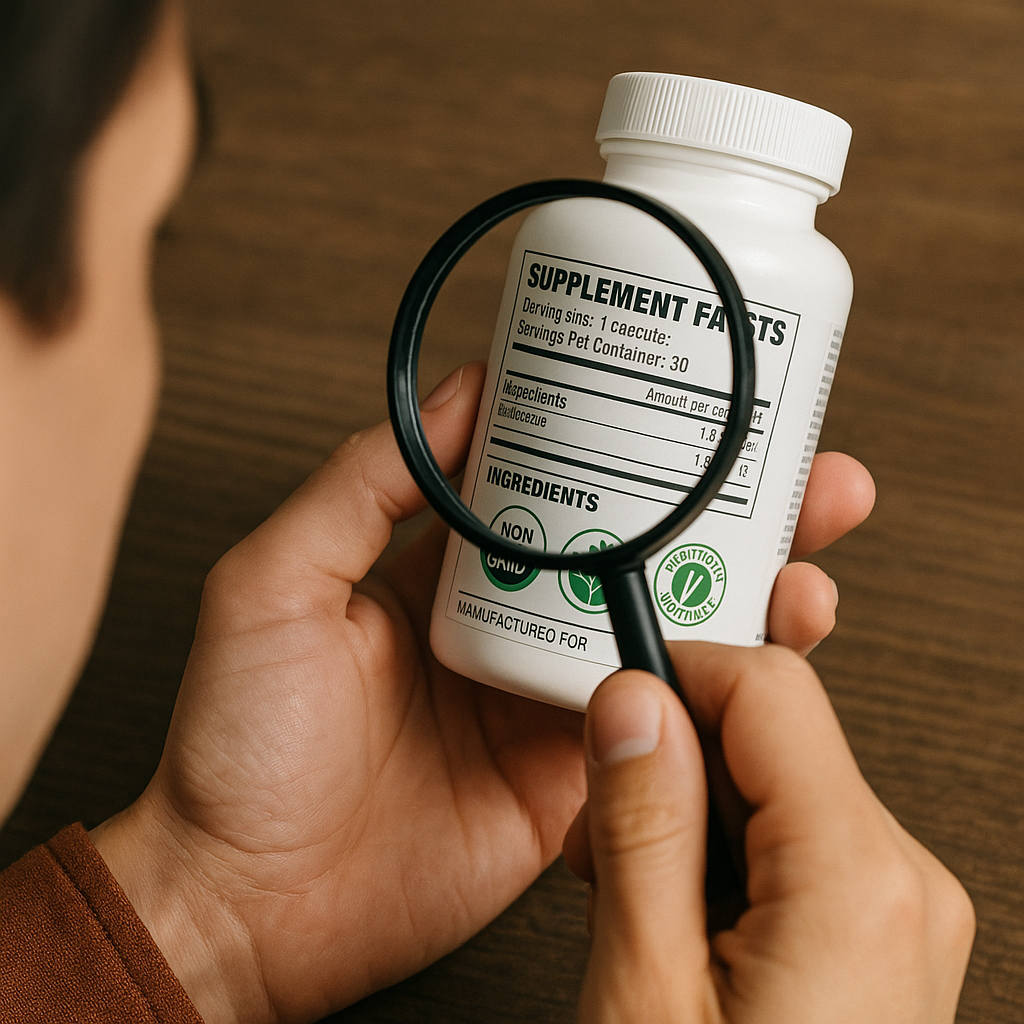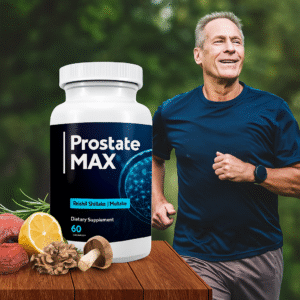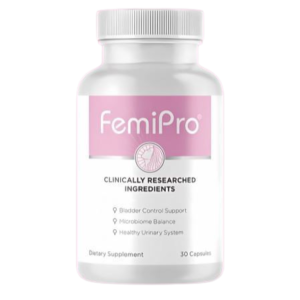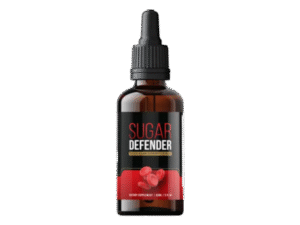Moreover, choosing quality supplements has become increasingly challenging as the market floods with thousands of products making bold health claims. Quality supplements can significantly impact your wellness journey, however, the supplement industry’s limited regulation creates a dangerous landscape where substandard products often masquerade as premium options. Furthermore, recent FDA analysis revealed that over 700 dietary supplements contained undeclared drug ingredients, putting consumers at serious risk.
Therefore, understanding how to identify truly safe and effective supplements is crucial for protecting both your health and investment. Additionally, this comprehensive guide will equip you with expert knowledge to navigate the supplement marketplace confidently, ensuring you select products that meet the highest safety and efficacy standards.
[Suggested Image: Person examining supplement bottle label with magnifying glass – Alt text: “Consumer reading supplement label to identify quality supplements and certifications”]
Understanding the Current Supplement Industry Landscape
The Regulatory Reality of Supplement Safety
Unlike prescription medications, dietary supplements don’t require FDA approval before reaching consumers. Consequently, this creates a “buyer beware” environment where quality varies dramatically between manufacturers. Meanwhile, the responsibility for ensuring product safety falls primarily on the companies themselves.
Furthermore, key regulatory facts include:
- No pre-market testing requirements for supplements
- Limited FDA oversight until problems are reported
- Manufacturer self-regulation of product safety
- Potential labeling loopholes that allow misleading claims
The Quality Spectrum: Premium vs. Low-Grade Products
The supplement industry operates on a wide quality spectrum. Additionally, high-quality manufacturers invest heavily in rigorous testing, follow pharmaceutical-grade standards, and provide transparent labeling with third-party verification. However, low-quality producers often cut corners on testing, use cheap ingredients, and make exaggerated claims while avoiding accountability.
Therefore, understanding this spectrum is essential for making informed purchasing decisions that prioritize your health and safety.
Essential Certifications and Quality Markers
Good Manufacturing Practices (GMP) Certification
GMP certification serves as your first line of defense against substandard supplements. Moreover, this certification ensures products are manufactured consistently and meet established quality standards. Furthermore, GMP certification guarantees proper facilities, trained personnel, systematic quality control, detailed record keeping, and contamination prevention procedures.
Additionally, different types of GMP certification include:
- FDA GMP: Minimum requirements for supplement manufacturers
- NSF GMP: More stringent standards with regular audits
- Pharmaceutical GMP: Highest standards used for drug manufacturing
Third-Party Testing and Verification
Third-party testing provides independent verification of supplement quality and potency. Consequently, reputable organizations like NSF International, USP Verification, and ConsumerLab.com offer comprehensive testing services that verify label claims, check for contaminants, and provide ongoing monitoring.
Meanwhile, NSF International specifically tests for banned substances in sports supplements, while USP Verification focuses on identity, strength, purity, and disintegration testing. Therefore, products bearing these certifications demonstrate a commitment to quality that goes beyond manufacturer claims.
Additional Important Certifications
Furthermore, other valuable certifications include USDA Organic seals, which ensure organic ingredients and prohibit synthetic pesticides, and Non-GMO Project Verified labels, which guarantee products are free from genetically modified organisms. Additionally, these certifications provide transparency and meet the growing demand from health-conscious consumers.
Red Flags: Warning Signs of Poor Quality Supplements
Exaggerated Claims and Marketing Red Flags
However, many supplement companies use questionable marketing tactics that should immediately raise concerns. Moreover, unrealistic promises such as “miracle cure” language, claims to cure serious diseases, or promises of rapid dramatic results are major warning signs.
Additionally, fake testimonials using stock photos, testimonials that sound scripted, or lack of verifiable customer information indicate potentially fraudulent products. Furthermore, high-pressure sales tactics, limited-time offers that never expire, and refusal to provide detailed ingredient information are serious red flags.
Problematic Ingredient Practices
Meanwhile, proprietary blends that hide individual ingredient amounts prevent consumers from verifying therapeutic dosages. Consequently, these formulations often contain “pixie dust” amounts of active ingredients that provide no therapeutic benefit.
Therefore, excessive fillers and additives, underdosed active ingredients, and the use of inferior ingredient forms are clear indicators of poor supplement quality that should be avoided.
Questionable Business Practices
Furthermore, companies that lack proper contact information, provide only email contact options, or have unresponsive customer service raise serious concerns about their legitimacy. Additionally, unrealistic pricing, hidden fees, auto-ship scams, and absence of money-back guarantees suggest questionable business practices.
How to Read and Interpret Supplement Labels
Understanding the Supplement Facts Panel
Moreover, the Supplement Facts panel contains crucial information for evaluating product quality. Additionally, serving size information helps determine if the dosage matches recommended amounts and allows you to calculate cost per effective dose.
Furthermore, ingredient lists must display all components in descending order by weight, with clear allergen information and no hidden ingredients. Therefore, learning to decode this information is essential for making informed supplement choices.
Decoding Ingredient Quality and Potency
Meanwhile, the form of active ingredients significantly impacts bioavailability and effectiveness. Consequently, look for research-backed forms like magnesium glycinate instead of magnesium oxide, and verify that ingredient forms match those used in clinical studies.
Additionally, standardized herbal extracts with guaranteed potency levels ensure consistency between batches and therapeutic effectiveness. Therefore, understanding these nuances helps identify truly high-quality supplements.
Research-Based Ingredient Selection
Evaluating Scientific Evidence
Furthermore, different types of scientific evidence support supplement ingredients, with randomized controlled trials representing the gold standard. Additionally, meta-analyses provide comprehensive reviews of multiple studies, while observational studies offer supporting evidence.
However, red flags in research claims include studies conducted only on animals, single small-scale human studies, research funded entirely by manufacturers, and misrepresentation of study results. Therefore, critically evaluating the scientific backing is crucial for selecting effective supplements.
Understanding Clinically Effective Dosages
Moreover, therapeutic doses should match those used in successful clinical trials. Additionally, many supplements contain amounts well below effective doses, split effective doses across multiple products, or use forms with poor bioavailability.
Consequently, understanding minimum effective doses, upper safe limits, and proper timing requirements ensures you select supplements that can actually deliver promised benefits.
Manufacturing Quality and Safety Standards
Facility Standards and Quality Control
Meanwhile, reputable manufacturers operate FDA-registered facilities that undergo regular inspections. Furthermore, proper environmental controls, contamination prevention procedures, and comprehensive quality control testing distinguish high-quality producers from substandard operations.
Additionally, raw material testing should include identity verification, potency testing, contamination screening, and allergen testing. Therefore, finished product testing for potency, dissolution, stability, and microbiological safety ensures product integrity from manufacturing to consumption.
Supply Chain Transparency
Moreover, ingredient sourcing from reputable suppliers with quality certifications, chain of custody documentation, and country of origin information demonstrates commitment to quality. Additionally, sustainable and ethical sourcing practices reflect a company’s overall integrity and values.
Cost vs. Quality: Finding the Sweet Spot
Understanding True Value in Supplements
Furthermore, calculating cost per effective dose rather than per bottle provides a more accurate value assessment. Additionally, high-quality supplements may cost more upfront but provide better value through superior effectiveness, safety, and reliability.
Therefore, quality supplements reduce the risk of adverse effects and often require lower doses for effectiveness compared to cheap alternatives. Meanwhile, investing in pharmaceutical-grade manufacturing standards and comprehensive quality control measures justifies premium pricing.
When to Pay More (and When Not To)
However, certain premium features are worth the extra cost, including patented clinically researched ingredient forms, third-party testing verification, and comprehensive quality control measures. Additionally, these investments in quality translate to better health outcomes and safety.
Conversely, fancy packaging, celebrity endorsements, multilevel marketing premiums, and unnecessary additive upgrades don’t justify higher prices. Therefore, focus on quality markers that actually impact product effectiveness and safety.
Choosing Reputable Supplements Brands
Established Brand Indicators
Moreover, reputable companies demonstrate transparency through clear contact information, accessible customer service, and detailed product information. Additionally, investment in clinical research, collaboration with healthcare professionals, and evidence-based formulations indicate scientific commitment.
Furthermore, consistent positive reviews across platforms, responsive customer service, reasonable return policies, and long-term customer satisfaction reflect brand reliability. Therefore, these factors help identify companies that prioritize consumer welfare over profits.
Industry Recognition and Professional Recommendations
Meanwhile, awards from reputable organizations, certifications from third-party testing companies, and recommendations from healthcare professionals provide external validation of quality. Additionally, positive ratings from consumer organizations offer unbiased assessments of product effectiveness and safety.
Making Your Final Selection
Decision-Making Framework
Consequently, successful supplement selection requires a systematic approach. Additionally, define your specific health goals, determine preferred supplement forms, consider dietary restrictions, and set a realistic budget range.
Furthermore, research options by comparing ingredient forms and dosages, checking for third-party testing and certifications, reading customer reviews, and verifying company reputation. Therefore, this comprehensive evaluation ensures you select supplements that meet your needs and quality standards.
Ongoing Quality Assurance
Moreover, regular evaluation of supplement effectiveness, monitoring for product recalls, and staying informed about new research ensures continued quality. Additionally, reassessing needs as health goals change and watching for any adverse effects maintains optimal supplement regimens.
Conclusion
Therefore, navigating the supplement marketplace successfully requires focusing on quality markers like GMP certification, third-party testing, transparent labeling, and evidence-based formulations. Furthermore, quality supplements represent an investment in your health that provides superior effectiveness, safety, and reliability compared to cheaper alternatives.
Additionally, by applying these principles and working with healthcare professionals when needed, you can confidently select supplements that support your wellness goals safely and effectively. Moreover, your health deserves nothing less than the highest quality supplements available, and this guide provides the knowledge to make informed decisions that protect both your wellbeing and investment.
Ready to experience the difference that truly high-quality supplements make? Discover premium supplement options that exemplify all the quality standards discussed in this guide – from GMP certification to clinically effective dosages.
See the reviews and articles on our blog.
External Links:
- [FDA Dietary Supplement Guidance – https://www.fda.gov/food/dietary-supplements]
- [NSF International Supplement Certification – https://www.nsf.org/consumer-resources/health-beauty/supplements-vitamins]
- [USP Verification Program – https://www.usp.org/verification-services]
- [ConsumerLab Independent Testing – https://www.consumerlab.com]
- [National Institutes of Health Supplement Database – https://ods.od.nih.gov]





Pingback: Prime Biome: Unlock the Power of Gut Health - A Comprehensive Review - premiumoffersreview.com
Pingback: Prostate Max Review 2025: Ultimate Men's Health Breakthrough - premiumoffersreview.com